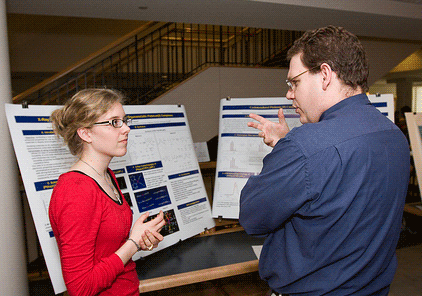Poster Title
Faculty Advisor
Teri L. Burgess-Champoux, PhD, RD, LD
Department
Department of Family, Consumer, and Nutritional Sciences
Abstract
Within the past 25 years, the prevalence of obesity has doubled in the United States. In 2010, one-third of American adults were considered obese (BMI ≥ 30). There are several risk factors associated with the etiology of obesity. The objective of this systematic review was to determine the association between lack of sleep and risk of obesity in adults. Science Direct and EBSCO Host databases were used to search the key terms “lack of sleep and obesity.” All articles were original research articles published within the last five years. Review papers were excluded from this study. Cross-sectional studies were examined. Five of the studies concluded lack of sleep did increase risk of obesity. One study found that females have a greater risk than males of becoming obese, when lacking sleep. Two studies concluded that adult men and women who slept for long durations (>9h) were also at risk of becoming obese. One study found no association between sleep duration and weight gain. Limitations for all six of the studies would be the type of study design. Cross-sectional studies do not determine cause and effect. Other limitations included small sample sizes in two of the studies and use of self-reported data (height, weight, and hours of sleep per night) in six of the studies. A strength for the majority of the studies would be large sample sizes. When consulting with an obese patient, a Registered Dietitian could determine how many hours of sleep the patient receives each night. Future research may focus on the relationship between lack of sleep and obesity within each gender, and compare the results.
Start Date
19-4-2012 11:00 AM
End Date
19-4-2012 1:00 PM
Lack of Sleep Increases Risk of Obesity in Adults
Within the past 25 years, the prevalence of obesity has doubled in the United States. In 2010, one-third of American adults were considered obese (BMI ≥ 30). There are several risk factors associated with the etiology of obesity. The objective of this systematic review was to determine the association between lack of sleep and risk of obesity in adults. Science Direct and EBSCO Host databases were used to search the key terms “lack of sleep and obesity.” All articles were original research articles published within the last five years. Review papers were excluded from this study. Cross-sectional studies were examined. Five of the studies concluded lack of sleep did increase risk of obesity. One study found that females have a greater risk than males of becoming obese, when lacking sleep. Two studies concluded that adult men and women who slept for long durations (>9h) were also at risk of becoming obese. One study found no association between sleep duration and weight gain. Limitations for all six of the studies would be the type of study design. Cross-sectional studies do not determine cause and effect. Other limitations included small sample sizes in two of the studies and use of self-reported data (height, weight, and hours of sleep per night) in six of the studies. A strength for the majority of the studies would be large sample sizes. When consulting with an obese patient, a Registered Dietitian could determine how many hours of sleep the patient receives each night. Future research may focus on the relationship between lack of sleep and obesity within each gender, and compare the results.

